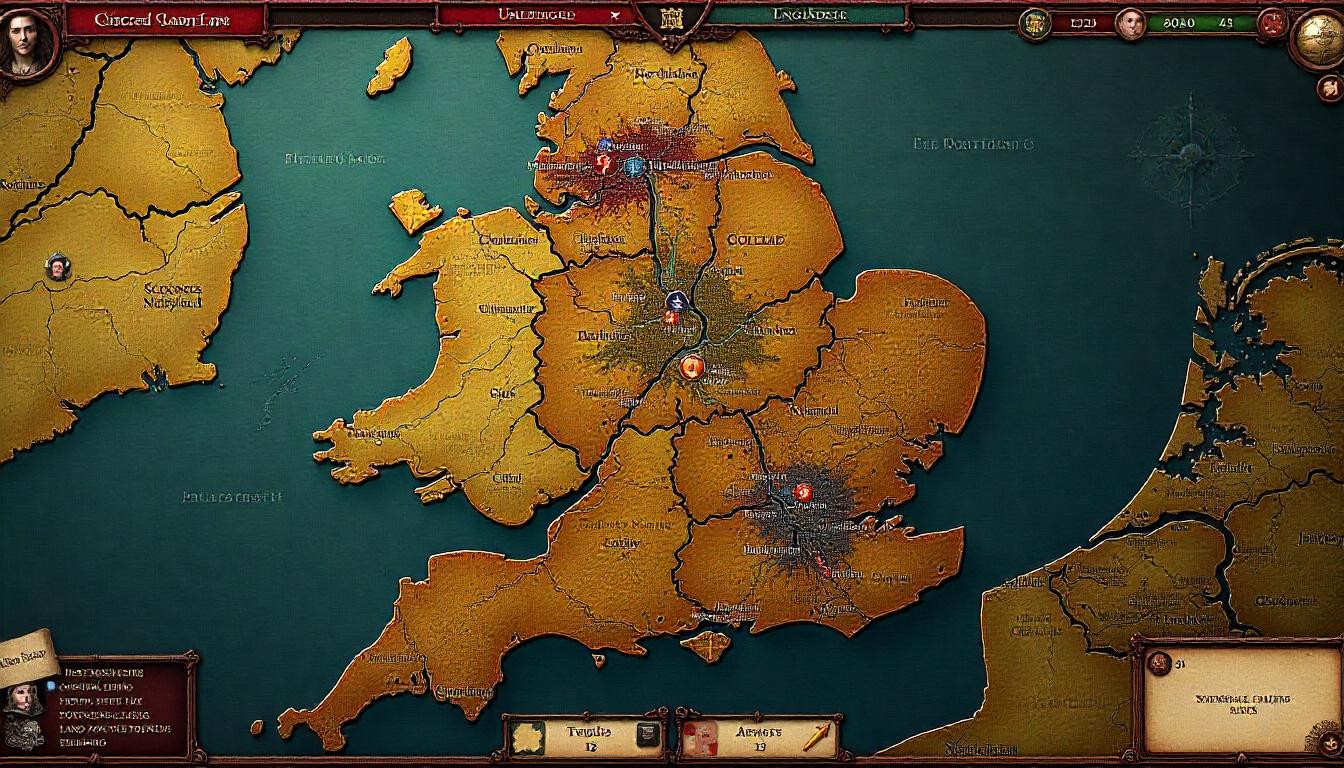Crusader Kings III is a grand strategy game developed by Paradox Interactive, immersing players in the complex political, military, and social dynamics of medieval Europe. As the leader of a dynasty, players navigate intrigue, warfare, and alliances to expand their realm and secure their legacy. With deep role-playing elements, dynamic storytelling, and historical accuracy, Crusader Kings III sets a new standard in strategy gaming.
Introduction to Crusader Kings III
Crusader Kings III, released by Paradox Interactive, is the third installment in the beloved grand strategy franchise. The game combines historical accuracy, intricate political systems, and a rich role-playing experience. Set during the medieval period, spanning from 867 to 1453, players assume the role of a ruler from a noble dynasty, shaping its destiny across centuries.
The game builds upon its predecessors while introducing modern mechanics, an improved user interface, and stunning visuals. Its unique blend of strategy and personal storytelling has captivated new players and veterans alike.
Key Features
1. Dynastic Legacy
At its core, Crusader Kings III is about dynasties. Players are tasked with ensuring their family’s longevity through marriage, alliances, and inheritance. Success isn’t solely about territorial expansion; it’s about leaving a lasting legacy.
- Family and Succession: Your character’s traits, decisions, and relationships shape the future of your dynasty. Plan your heirs’ marriages to strengthen alliances or claim new territories.
- Renown System: Build your family’s renown by achieving milestones and earning the admiration of other rulers.
2. Role-Playing Elements
Every character in Crusader Kings III is unique, with traits, ambitions, and secrets. Players can role-play as benevolent monarchs, ruthless tyrants, or cunning schemers.
- Lifestyle Choices: Develop your character through five lifestyle paths—Diplomacy, Martial, Stewardship, Intrigue, and Learning—each with unique skill trees.
- Stress Mechanics: Decisions have psychological impacts. Overburdened rulers may develop stress, leading to breakdowns or eccentric behavior.
3. Dynamic Storytelling
The game’s AI-driven storytelling generates unexpected twists, creating memorable narratives.
- Events and Decisions: Encounter dilemmas ranging from rebellions to forbidden romances. Your choices shape the world.
- Religion and Culture: Players can embrace historical faiths or create custom religions. Cultural shifts, innovations, and assimilation add depth.
4. Warfare and Strategy
While diplomacy is vital, sometimes war is unavoidable.
- Army Management: Recruit knights, levies, and mercenaries. Use terrain and strategy to outmaneuver enemies.
- Sieges and Battles: Engage in epic confrontations or conduct surgical strikes to destabilize opponents.
- Casus Belli (Cause for War): Declare wars for valid reasons, or fabricate claims through intrigue.
5. Modding and Customization
Crusader Kings III embraces its modding community. Players can customize almost every aspect, from character appearances to entire maps. This flexibility extends the game’s replayability.
Gameplay Experience
1. Starting Your Journey
Players begin by selecting a historical ruler or creating a custom character. The starting point significantly impacts gameplay, as each region presents unique challenges and opportunities. For example:
- Vikings in Scandinavia: Engage in raiding and pillaging.
- European Feudal Lords: Balance vassal loyalty and expansion.
- Islamic Dynasties: Navigate religious intricacies and trade opportunities.
2. Managing Your Realm
Efficient governance is key to survival. Players must:
- Oversee Holdings: Manage castles, cities, and temples to generate taxes and troops.
- Handle Vassals: Keep powerful nobles loyal through gifts, titles, or intimidation.
- Law and Order: Enact laws, such as succession rules or feudal obligations.
3. Intrigue and Espionage
Scheming is a cornerstone of Crusader Kings III. Players can:
- Spy on Rivals: Discover secrets to gain leverage or blackmail.
- Assassinate Threats: Remove problematic heirs or rivals.
- Form Alliances: Forge bonds through marriages or shared interests.
4. Diplomacy and Alliances
Diplomatic relationships can make or break your reign. Players must:
- Negotiate Treaties: Form alliances, offer tributes, or demand vassalage.
- Host Grand Events: Strengthen ties through feasts or tournaments.
- Appease the Church: Maintain favor with religious leaders to avoid excommunication.
Advanced Features
1. Cultural Innovations
Cultures evolve through innovations, unlocking new technologies and abilities. Players influence this process by focusing on specific advancements, such as military upgrades or economic improvements.
2. Custom Religions
Players can reform existing faiths or establish new ones. Customization options include doctrines, tenets, and practices. For example, create a matriarchal faith or embrace pacifism.
3. Legacy Bonuses
As dynasties accumulate renown, they unlock legacy bonuses. These can enhance martial prowess, improve fertility rates, or boost diplomatic relations.
Challenges and Replayability
Crusader Kings III offers endless replayability due to its dynamic AI and vast map. Challenges include:
- Succession Crises: Prevent power struggles during transitions.
- Unpredictable AI: Rivals may betray you, vassals may rebel, and allies may abandon you.
- Event RNG: Randomized events keep gameplay fresh but can also derail plans.
Visuals and Sound
Crusader Kings III features detailed character models and a vibrant map showcasing historical regions. The atmospheric soundtrack complements the medieval theme, enhancing immersion.
Conclusion
Crusader Kings III is a masterpiece of grand strategy, blending deep mechanics with personal storytelling. Whether you’re a seasoned strategist or new to the genre, its complexity and depth offer countless hours of engaging gameplay. Embark on your journey to forge a dynasty, outmaneuver rivals, and leave an indelible mark on history.
Would you like to refine or expand on specific sections?
